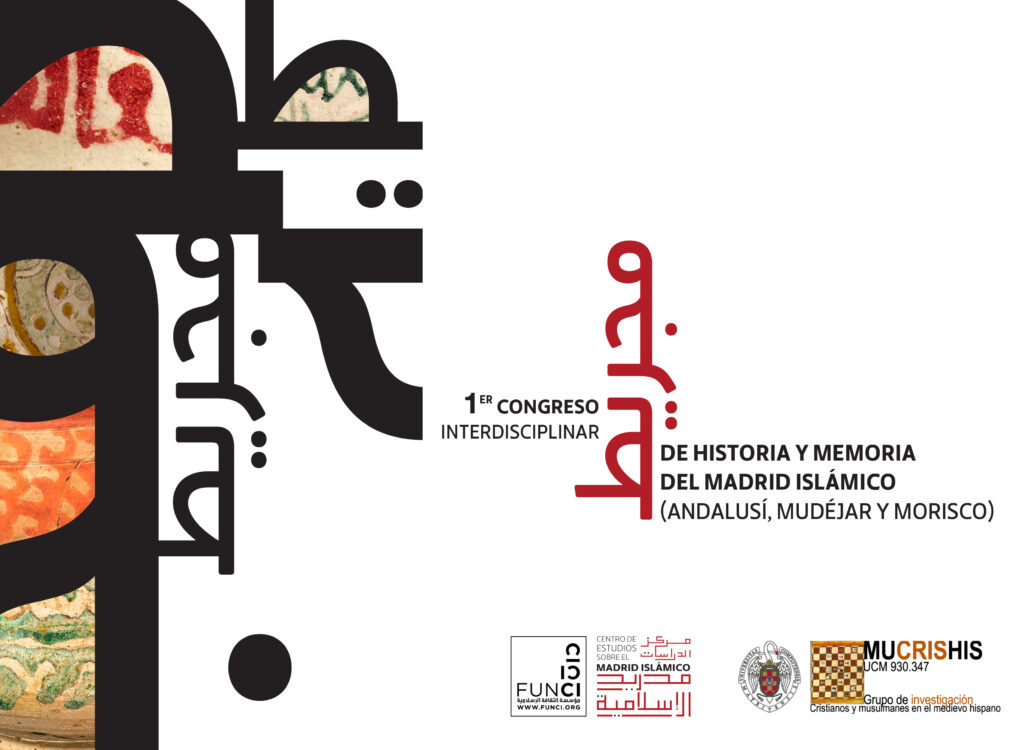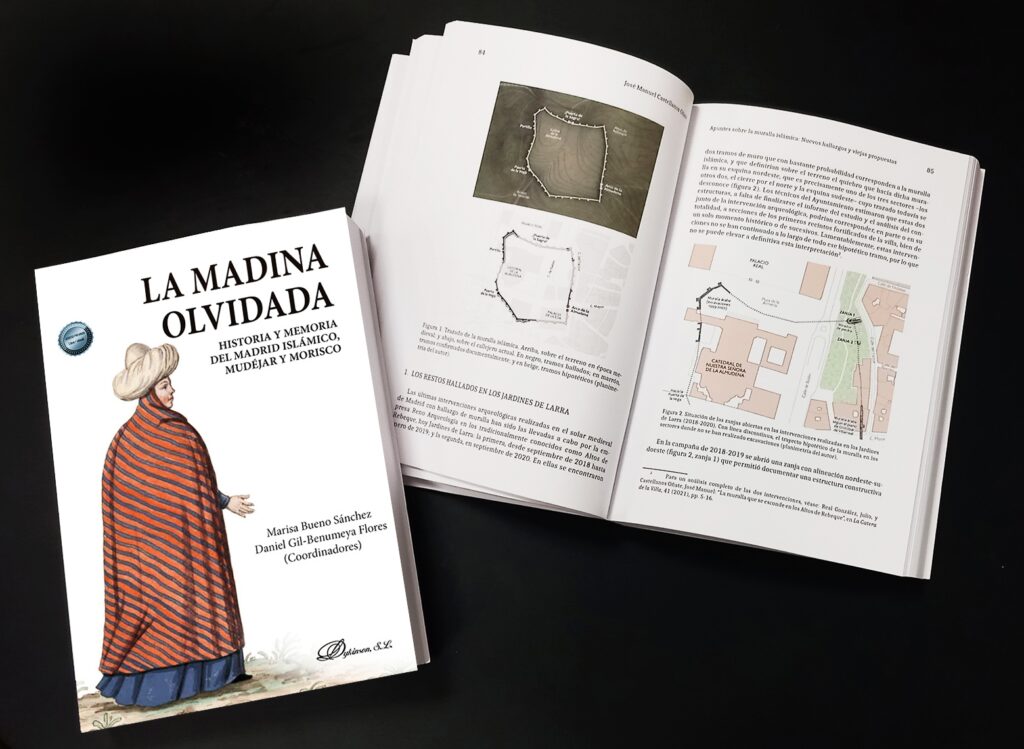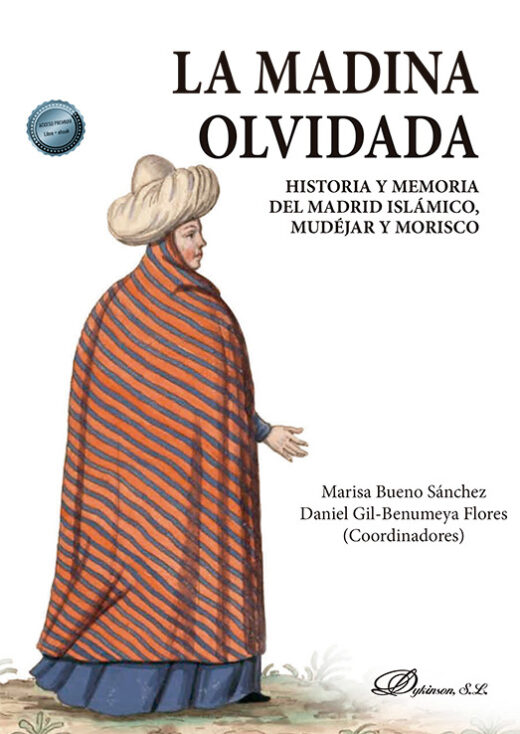Articles, Publications
Publication of ‘La madina olvidada’.
Author(s): Marisa Bueno Sánchez, Daniel Gil-Benumeya Flores
Year of publication: 2024
City of publication: Madrid
Editorial: Dykinson
Number of pages: 311
Additional information: 17 cm x 24 cm; fot., planos color.
ISBN: 9788410702776
Price: 30 €
Go to Amazon to buy this book: https://funci.org/pagina-de-inicio/libros/madina_olvidada/
Article author: Marisa Bueno Sánchez, Daniel Gil-Benumeya Flores
Date of publication of the article: 31/07/2024
Year of publication: 2024
Article theme: Madrid, Mayrit, Patrimonio, Publications.
Since the creation in 2017 of the Centre for Studies on Islamic Madrid (CEMI), a project of the Islamic Culture Foundation (FUNCI), numerous activities and events have been carried out in accordance with the centre’s objectives and in relation to the current state and conservation of Madrid’s Islamic cultural and historical legacy.
Among these activities, the first Interdisciplinary Congress on the History and Memory of Islamic Madrid (Andalusian, Mudejar and Morisco) in collaboration with the UCM Research Group 930.347 ‘Christians and Muslims in the Hispanic Middle Ages’ of the Complutense University of Madrid, held on 20 and 21 May 2021, and sponsored by Dar al Thaqafah and Anbatat.
The aim of the conference was to explore the state of knowledge about the historical Islamic presence in Madrid and its region, from the Andalusian period when the city was founded until the Modern Age. The aim was also to encourage reflection on the management of the material and immaterial heritage derived from this historical presence. To this end, five thematic axes were addressed: Andalusi Madrid, Mudejar Madrid, the Islamic presence in Madrid in the Modern Age, the work of recovering Islamic Madrid and the management of Madrid’s Islamic heritage. To this end, researchers approached the subject of study from the different disciplines of Medieval and Modern History, Arab and Islamic Studies, Archaeology, Tourism and Public Management and Administration.

The forgotten madina
This June 2024 saw the publication of the result of this congress, in collaboration with the Complutense University of Madrid (UCM) and the Community of Madrid, coordinated by Marisa Bueno Sánchez, from the University of Valladolid (UVa), and Daniel Gil-Benumeya Flores, scientific coordinator of CEMI. A large number of researchers have collaborated in it, addressing and updating issues already dealt with in this event: Christine Mazzoli-Guintard, Antonio Malalana Ureña, Jose Manuel Castellanos Oñate, Rodrigo Moreno, Mª Carmen Escribano Ródenas, Jose Ignacio Murillo Fragero, Juan Carlos de Miguel Rodríguez, Rubén González Cuerva, Irene Suárez Zamorano, Mónica Major González, Eduardo Penedo Cobo and Juan Cortés Martín.
History and memory are the two pillars on which this work is based. ‘La Madina Olvidada’ further develops the objectives set at the beginning of the congress, thus contributing to the dissemination of the Andalusian, Mudejar and Moorish heritage in the history of Madrid, trying to deactivate the ideological projections in the knowledge of the past.

While history necessarily takes the form of a record, continually rewritten and re-evaluated in the light of new evidence, memory can be associated with non-intellectual public purposes directly related to the genesis of collective identities through mnemonic manifestations of an inevitably partial and selective past. Today, Madrid’s Islamic past is diluted in public space; the great urban transformations experienced by the city since the 16th century have almost completely eliminated the material traces of the Islamic city. The decline of Madrid’s Islam coincided with the mythical fabulations about the origins of the town of Madrid, seat of the court in 1561, origins more in line with the official values of the Hispanic Monarchy and later with the Spanish nation-state, becoming part of the paradigm of ‘loss and reconquest’ in the discourses of the 19th century. Madrid’s Islamic origins have been the subject of a long-running controversy that continues to this day and which expresses the extent to which the heritage of al-Andalus has not been well digested by the Spanish national imaginary.


